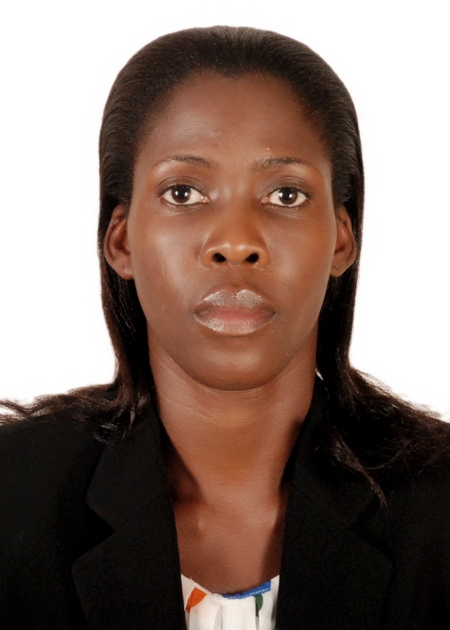Norman Borlaug Centennial Q&A's with Experts:
If Norman Borlaug posed the following questions to you... what would you tell him?

"Let us not wait to work and make wonders when we are old."
Emma Naluyima, Ph.D., Smallholder farmer
Uganda
Q: What’s the one thing – the single most important – that we need to address to solve food insecurity?
A: Increase food production. The biggest and most challenging aspect of food security is the support of agriculture farmers to produce the right amount of food in quantities with the right organic composition possible. As a world society, WE SHOULD STOP TAKING AGRICULTURE FOR GRANTED and start developing a consciousness of how food is produced, and the farmer’s necessities to keep producing edible and safe food for all. Farmers are challenged to find the right inputs to grow the foods.
When there is enough food produced, the rest of the levels of agriculture will fall into play, that is; food processing and packaging, distribution.
Q: What is one piece of advice you would give young people?
A: If you want to predict the future, change the present. You are the future of the world, so you must make sure you make a beautiful world for yourselves. Believe in yourselves. You are young and energetic. It is useless to think you are independent when you actually ask for food handouts. Get up and produce your own food.
This is what I learned from my granddad. Prepare for 60 at 16, prepare for 70 at 17 or prepare for 80 at 18. This means starting early. Let us not wait to work and make wonders when we are old. The best time of our years is between 16 and 35.
Q: How would you explain what you do, and why it’s important, to a 10-year-old?
A: Everyone needs to eat. I am a small holder farmer growing different kinds of food and keeping different kinds of animals on a small scale to produce food for home consumption and sale. The dung from the animals can also be as a form of energy and manure to grow our food. I also teach other people how to farm on a small scale and produce more. I am opening up a school for children so that they learn and appreciate farming.
Q: What is the most interesting project going on right now – yours or someone else’s - that more people should know about?
A: Integrated farming and energy production system that I practice on my farm. This system has hydroponics, which is a methodology of cultivation called “Soil-less Cultivation.” With drought affecting much of the world hydroponic fodder/farming is the way to go. Hydroponics uses less than one-tenth to one-fifth of the water used in soil cultivation, saving a lot of water. It can play an important part in helping to conserve water and yet derive yields of unimaginable magnitudes. No weeds to deal with – and less space needed for higher yields. It is the best option for the future where population increases, yet land does not increase.
Hydroponic fodder for animals is highly palatable, nutritious and increases digestibility of nutrients hence improves general animal health. It also improves general fertility, conception rates and increases newborn survival rates. There is no need for long-term feed storage and no nutrient losses that can be associated with feed storage. It reduces feed costs, and it is organic.
Q: What’s one thing the general population could do to make an impact on global food security?
A: Worldwide, food security is only possible if governments and non-profits work together to ensure that food is produced and distributed for optimum benefits by encouraging the youth to engage into agriculture. This is because the youth make 70 percent of people in the world. This will curb the challenge of employment for most youths and attain lifelong skills. The youth are active and consume a lot, so if there is not enough food for them to eat, they will be hungry. “A hungry man is an angry person.” This will also curb the challenge of insecurity caused by idle youth stealing to survive.
Q: What is one of your favorite quotes or words to live by?
A: The worst thief is not he who steals your money, but your time. That is your employee. “If you can’t keep time, you cannot keep money.”
Q: Share with us one of your most unique life experiences and what it taught you.
A: I went to a boarding primary school when I was seven years old. We used to go to the school garden at eight years. All the food we ate at the school was cultivated by the students. During the holidays I used to go to my grandparents and practice what I had learned at school. When the things I planted grew, my grandmother used to sell them, and she gave me the money. It taught me the benefits of farming and the value of money.


